‘Giving the benefit of the doubt’ is a noble concept. Used wisely, this beautiful proverb reminds us to stay humble and to consider that others are doing their best at all times. For many of us, though, giving the benefit of the doubt can be a painful pattern that keeps us stuck. When this is the case, the pattern is usually rooted in childhood.
For many people, our caregivers were not so caring. In order to make sense of why we didn’t receive the care we needed, we were left with a choice, namely
- Decide that the person upon whom I rely is unsafe, and therefore I am completely alone, or
- Decide that it is indeed me who is at fault and a piece of shit not worthy of their care.
When we are small, it is unthinkable and terrifying to consider being alone in the world, so when left with such a prospect, children turn the sense of inadequacy that exists in this dynamic upon themselves. In our younger minds, our caregiver must remain ‘good’ in order for us to feel somewhat safe. We determined that our caregiver is good, OK, right. We determined that their criticisms and rejections of us must be true and right. We determined that they were ‘good’ and we were ‘bad’.
When we have learned to play this shadow versus light game so well as children, we take this strategy into our adult lives and apply it to others we meet.
Friends who belittle me, good. Me bad.
Employers who exploit me, good. Me, bad.
Lovers who abuse me, good. Me, bad.
So you see, it’s not that I’m bad at all, it’s that I have a pattern in which I consistently view myself as ‘bad’ through a distorted lens. I am not bad, but I consistently tell myself that I am AND (the frightening part) THIS KEEPS ME SAFE.
It keeps me in my circle of friends, it keeps me employed, it keeps me in a relationship.
Yikes!
There’s a secondary gain in this cycle of self-abuse, and the threat of losing that which we hold dear creates pain for us if we consider ending the pattern.
This is the why – but it’s important to know that the why is not so important. To understand it may, for a moment, give you some validation for your feelings. Really, though, it’s merely an intellectual pursuit to care about the why, because no matter how deep you go into the reasons behind your pattern, unless you take steps to correct your trajectory, you are going to consistently find yourself in the same old pile of shit.


